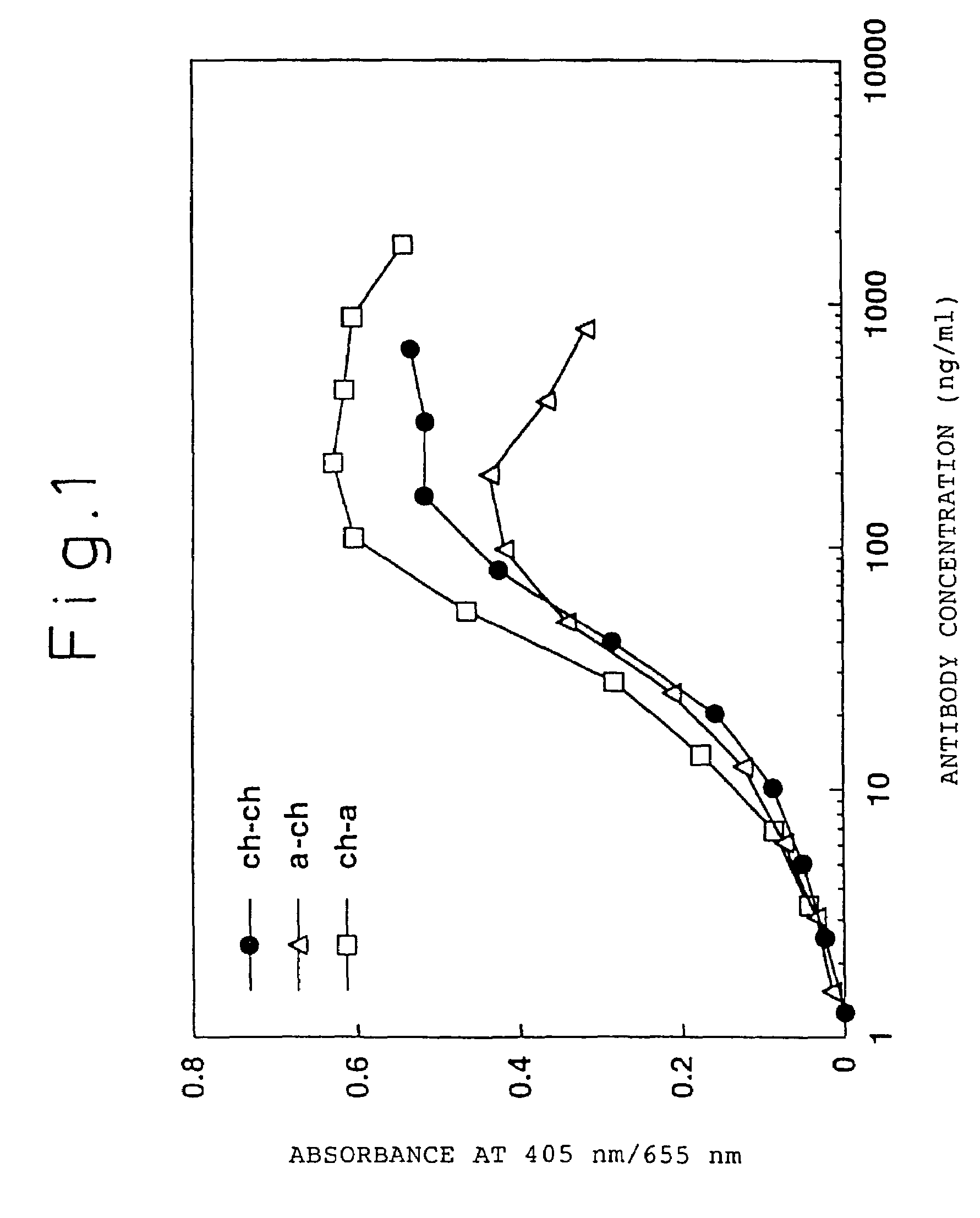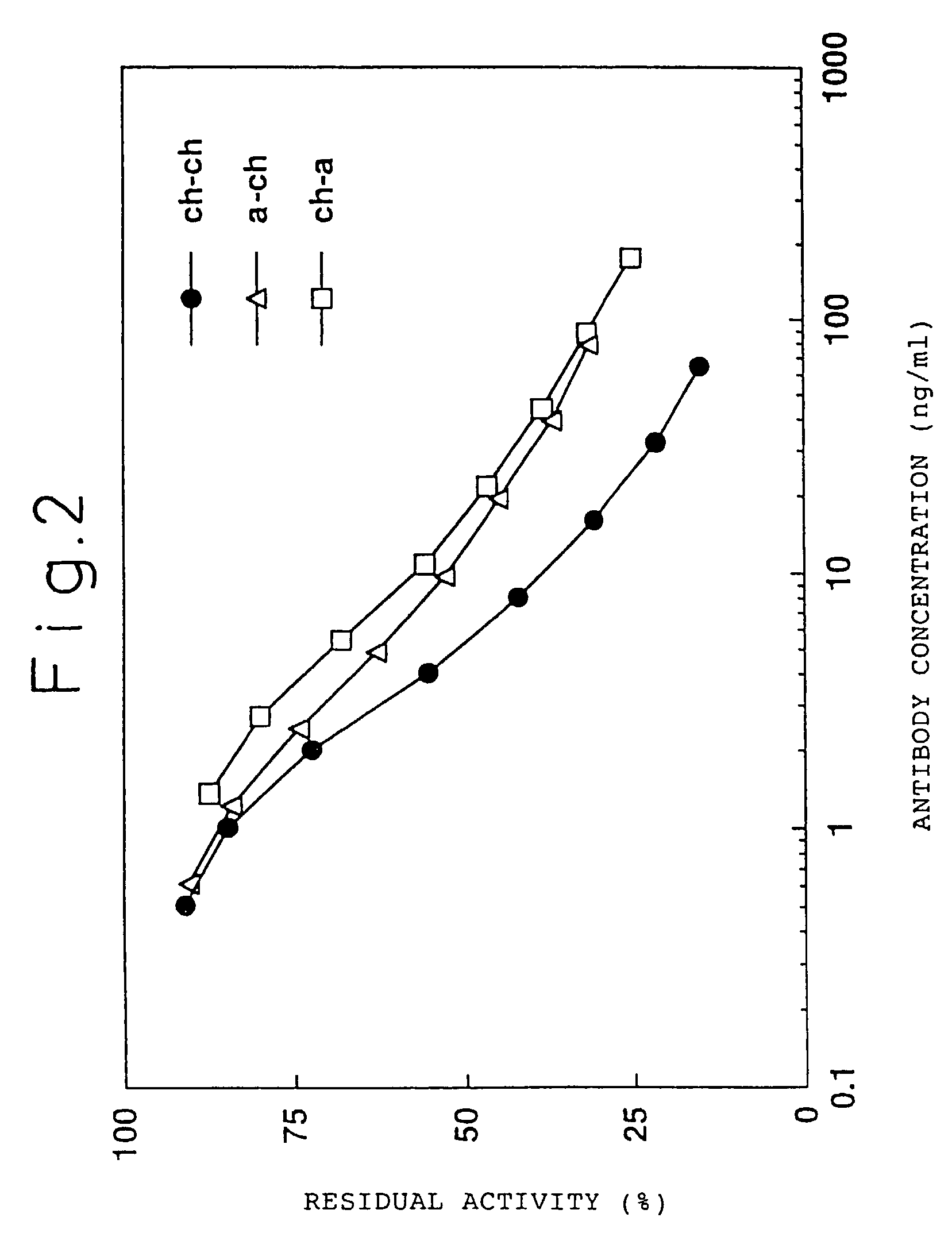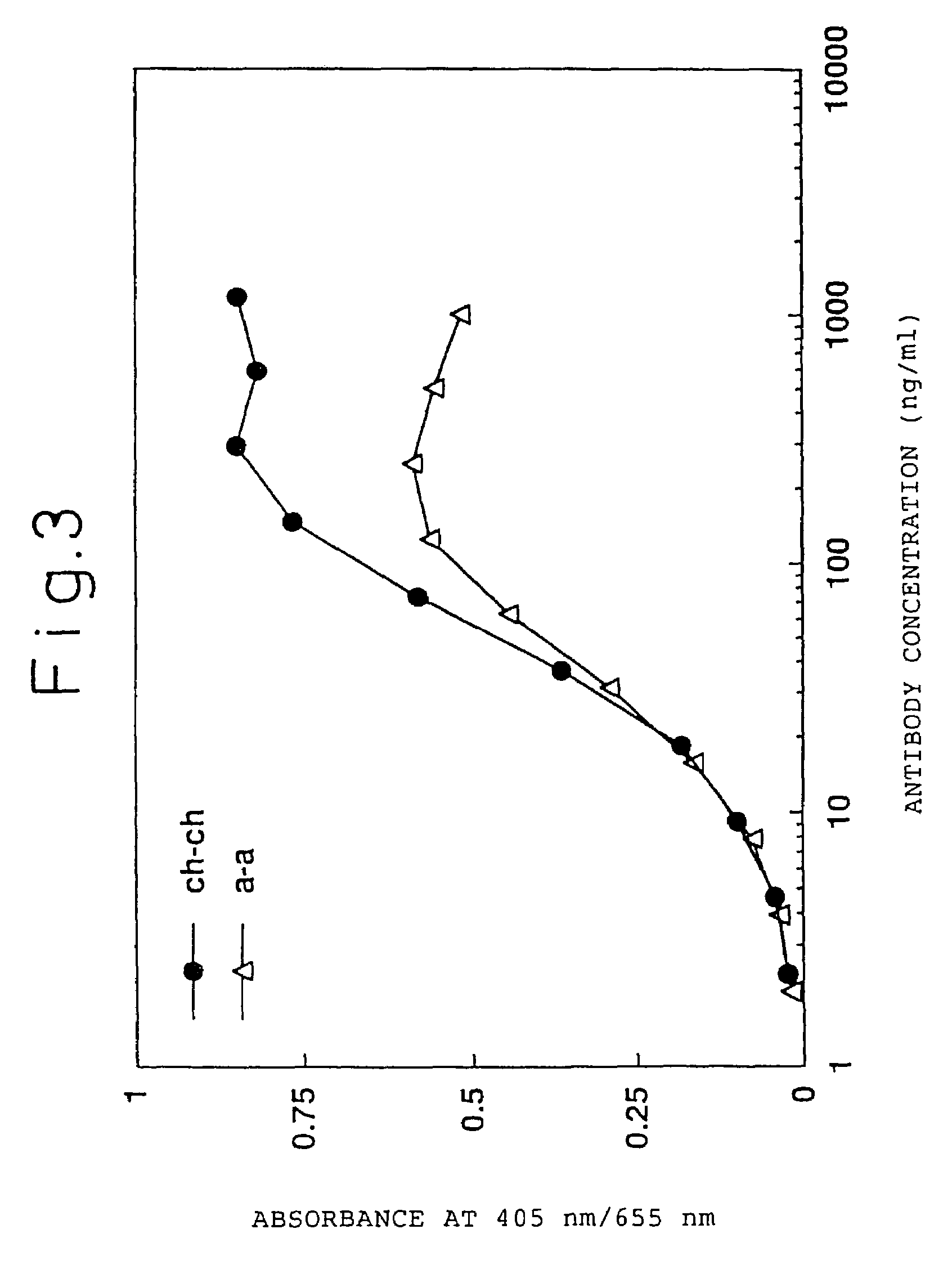Humanized antibody against human tissue factor (TF) and process of production of the humanized antibody
- Summary
- Abstract
- Description
- Claims
- Application Information
AI Technical Summary
Benefits of technology
Problems solved by technology
Method used
Image
Examples
example 1
Cloning of DNA Encoding the V Region of a Mouse Monoclonal Antibody Against Human TF
[0216](1) Preparation of mRNA
[0217]mRNA was prepared from hybridomas ATR-2, ATR-3, ATR4, ATR-5 (IgG1κ), ATR-7, and ATR-8 (IgG2aκ) using the QuickPrep mRNA Purification Kit (Pharmacia Biotech). Each hybridoma cell was completely homogenized in the extraction buffer according to instructions attached to the kit, and then mRNA was purified by the oligo (dT)-cellulose spun column, followed by ethanol precipitation. The mRNA precipitate was dissolved in the elution buffer.
[0218](2) Preparation and Amplification of cDNA of the Gene Encoding a Mouse Antibody V Region
[0219](i) Cloning of H Chain V Region cDNA
[0220]The cloning of the gene encoding the H chain V region of a mouse monoclonal antibody against human TF was carried out using the 5′-RACE method (Frohman, M. A. et al., Proc. Natl. Acad. Sci. USA 85: 8998-9002, 1988; Belyavsky, A. et al., Nucleic Acids Res. 17: 2919-2932, 1989). For the 5′-RACE metho...
example 2
Construction of Chimeric Antibody
[0239]A chimeric ATR-5 antibody was generated in which the mouse ATR-5 antibody V region was ligated to the human antibody C region. A chimeric antibody expression vector was constructed by ligating the gene encoding the ATR-5 antibody V region to an expression vector encoding the human antibody C region.
[0240](1) Construction of a Chimeric Antibody H Chain V Region
[0241]The ATR-5 antibody H chain V region was modified by the PCR method in order to ligate it to an expression vector encoding the human antibody H chain C region. The 5′-end primer ch5HS (SEQ ID NO: 18) was designed so as to hybridize the 5′-end of DNA encoding the V region and to have the Kozak consensus sequence (Kozak, M. et al., J. Mol. Biol. 196: 947-950, 1987) and a recognition sequence of the restriction enzyme SalI. The 3′-end primer ch5HA (SEQ ID NO: 19) was designed so as to hybridize 3′-end of DNA encoding the J region and to have a recognition sequence of the restriction enzy...
example 3
Construction of Humanized Antibody
[0277](1) Construction of Humanized Antibody H Chain
[0278](i) Construction of the Humanized H Chain Version “a”
[0279]Humanized ATR-5 antibody H chain was generated using CDR-grafting by the PCR method. In order to generate the humanized antibody H chain version “a” having the FRs derived from human antibody L39130 (DDBJ, Gao L. et al., unpublished, 1995), seven PCR primers were used. The CDR-grafting primers hR5Hv1S (SEQ ID NO: 22), hR5Hv2S (SEQ ID NO: 23), and hR5Hv4S (SEQ ID NO: 24) have a sense DNA sequence, and the CDR grafting primers hR5Hv3A (SEQ ID NO: 25) and hR5Hv5A (SEQ ID NO: 26) have an antisense DNA sequence, each primer having a 18-35 bp complementary sequence on both ends thereof.
[0280]hR5Hv1S was designed to have the Kozak consensus sequence (Kozak, M. et al., J. Mol. Biol. 196: 947-950, 1987) and a SalI recognition site, and hR5Hv5A was designed to have a NheI recognition site. The exogenous primer hR5HvPrS (SEQ ID NO: 27) has a hom...
PUM
| Property | Measurement | Unit |
|---|---|---|
| Digital information | aaaaa | aaaaa |
| Fraction | aaaaa | aaaaa |
| Fraction | aaaaa | aaaaa |
Abstract
Description
Claims
Application Information
 Login to View More
Login to View More - R&D
- Intellectual Property
- Life Sciences
- Materials
- Tech Scout
- Unparalleled Data Quality
- Higher Quality Content
- 60% Fewer Hallucinations
Browse by: Latest US Patents, China's latest patents, Technical Efficacy Thesaurus, Application Domain, Technology Topic, Popular Technical Reports.
© 2025 PatSnap. All rights reserved.Legal|Privacy policy|Modern Slavery Act Transparency Statement|Sitemap|About US| Contact US: help@patsnap.com



